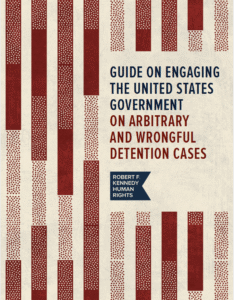In a troubling turn of events in the global struggle to protect civic spaces, the African Court on Human and Peoples’ Rights (“The African Court”) recently declined to hear the merits of a case challenging the illegal takeover by the Rwandan State of one of the last independent human rights organizations in the country, known by its French acronym, LIPRODHOR (Ligue rwandaise pour la promotion et la défense des droits de l’Homme). With government attacks on civil society, including human rights defenders, rising worldwide, the African Court missed a crucial opportunity to protect and promote freedom of association for Rwandans and to set a clear precedent for all Africans.
“At a time when governments across the continent are actively working to stifle dissent, repress active civic engagement, and quell opposition, the LIPRODHOR case typifies both this worrying trends and civil society’s resolute response to ardently protect civic spaces through all legal means available,” said Alice Mogwe, FIDH President. “Despite this setback, we will continue to pursue justice in the interest of civil society in Africa.”
The LIPRODHOR case (Appl.023/2015 Laurent Munyandilikirwa v. Republic of Rwanda) is a widely publicized and well-documented example of the Rwandan government’s systematic attacks on civil society, including human rights defenders and any dissidents to the current regime. In 2013, in retaliation for LIPRODHOR’s human rights work, the Rwandan government orchestrated the illegal ousting and replacement of its president, Laurent Munyandilikirwa, and other independent leaders of the organization through a sham meeting disavowed by the organization’s own internal dispute resolution committee for breaching LIPRODHOR’s internal rules. Despite notice of the sham process, the Rwanda Governance Board (RGB) hastily approved the installment of the new, illegitimate board, while the Rwandan courts failed to provide relief and the country’s banking system illegally transferred ownership of the organization’s assets to the illegitimate board. State-run media slandered the legitimate but ousted leaders in the press, and the Rwandan police prevented the organization’s legitimate leaders from holding any meetings by arbitrarily detaining them multiple times, forcing some to flee the country after repeated death threats.
“The ruling of the African Court does great injustice to independent civil society and human rights in Rwanda. It is disheartening that the Court ignored compelling facts of the case and input by UN Special Rapporteur Maina Kai, but allowed itself to be misled by the unfounded filings of the illegitimate board that was never admitted as a party to the case. However, we are undeterred by this decision and will continue to work with our partners at Robert F. Kennedy Human Rights and FIDH to seek justice in this case,” said Laurent Munyandilikirwa.
“After nearly a decade of legal proceedings, Munyandilikirwa and LIPRODHOR have yet to have a single judicial body hear the merits of their case. It is regrettable that the African Court, a body that has often taken bold stances to address the continent’s most pressing human rights challenges, has continued the pattern established by the local courts in Rwanda to avoid hearing the Applicant’s case on the merits. Instead, as the dissenting opinions point out, the Court appears to rely on unsubstantiated claims and conjecture made by a clearly biased third party in order to deny admissibility in this case, which carries continent-wide and even global import,” said Wade McMullen, SVP Robert F. Kennedy Human Rights.
State-sponsored repression is a recurring threat to civic space globally, particularly in countries such as Rwanda, where state authorities have systematically obstructed or completely shut down independent civil society organizations. It has been documented that the Rwandan government habitually threatens, defames, arbitrary arrests, and unlawfully detains human rights defenders, journalists, opposition figures, and citizens. There have also been cases of forced abductions, judicial harrassment and suspected cases of assassinations within and outside the country.
Signed:
International Federation for Human Rights.
Robert F. Kennedy Human Rights.
Learn more about the case here.
Read the decision and dissenting opinions by Justice Kioko & Justice Achour.




